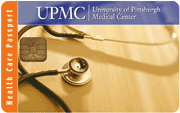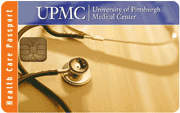Smart Card Alliance white paper shows smart card benefits for healthcare industry
27 February, 2007
category: Health
The Smart Card Alliance has issued a new white paper that describes healthcare industry challenges and the opportunities for using smart card technology to provide greater security and privacy. The paper examines what’s being used today and suggests additional applications the industry should consider.
As the healthcare industry is increasingly challenged with identity fraud, difficult insurance claims, decentralized storage of medical records, thin financial margins and government demand for secure, portable, and confidential patient information, the need for effective use of information technology (IT) is becoming essential. However, increased computerization, reliance on databases, and movement of sensitive patient information require strict controls to safeguard the security and confidentiality of healthcare records.
A new Smart Card Alliance white paper, Smart Cards in U.S. Healthcare: Benefits for Patients, Providers and Payers, describes the challenges within the healthcare industry and the clear opportunities for the use of smart card technology for security and privacy in healthcare. The paper examines smart card use in healthcare today and suggests additional applications for consideration.
“In an electronic healthcare world, information access with data protection is a key concern, fueled by legislation and an inherent need for patient privacy,” said Randy Vanderhoof, executive director of the Smart Card Alliance. “This white paper explains how smart card technology presents a unique opportunity to enable innovative healthcare solutions that combine secure information access and management with data mobility and patient privacy.”
The white paper describes and gives examples of the benefits that smart cards provide in healthcare applications, including:
– Supporting the privacy and security requirements mandated by HIPAA legislation.
– Reducing healthcare paperwork.
– Reducing the incidence of fraud in health benefit claims, a significant issue for the federal government.
– Improving the healthcare insurance claims process.
– Providing clean data for eligibility verification and claims processing.
– Enhancing patient control and privacy of electronic healthcare information.
– Enabling reliable interaction with a wide range of systems, over the Internet or offline.
“In the long run, the data carried and accessed by smart health cards can not only save lives, but can also save the healthcare industry billions of dollars,” added Vanderhoof.
Contributors to Smart Cards in U.S. Healthcare: Benefits for Patients, Providers and Payers are: Frank Avignone, Healthmeans; Paul Contino, Mount Sinai Medical Center; Chuck Wilson, Hitachi America Ltd.; Jeffrey Beulke, ACI Worldwide; and Kate Fortney, Gemalto. The white paper, written for executives and managers, is available at no charge from the Smart Card Alliance Web site at www.smartcardalliance.org.



